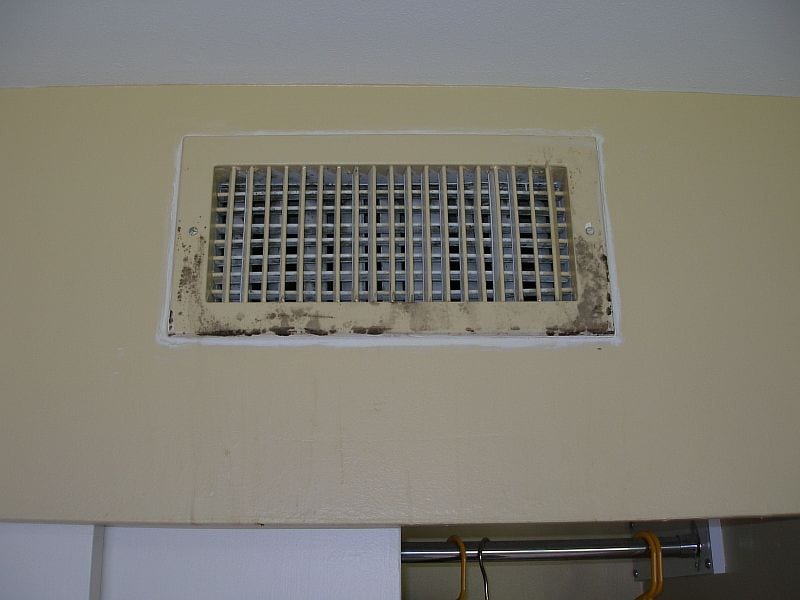The average person is capable of detecting roughly ten thousand different odors. While our sense of smell pales in comparison to many animals, that is still a lot of different odors!
We won’t be covering all ten thousand possible smells today, but we will be taking a look at some causes of common odors that might come from your home’s air conditioning and what you can do about them.

Did Someone Hide a Rotten Egg?
If you detect the odor of a rotten egg, the first thing you need to do is ensure it is not a gas leak. Natural gas is odorless but gas companies add a chemical to it so a leak does not go undetected. If you suspect you have a gas leak leave your home immediately. Once in a safe location, call 911 and your utility company.
However, if it is determined the smell is not a gas leak, a rotten egg odor coming from your air condition system may indicate you have a dead animal in your ductwork or HVAC system. Small birds and other animals often make their way into the system through the furnace ventilation system and can cause a multitude of additional problems besides the putrid smell.
It is imperative you have an HVAC technician look at the system after the dead animal is removed. Often, there is more than one animal in the system. Others may have gotten into the inner workings of the furnace or air handler. It is important for your safety, health, and HVAC system’s performance to ensure the system is clean and unobstructed.
Electrical Odor

While all HVAC systems have electrical safeties built into the system to keep you safe in the case of an electrical failure, it is up to you to take the indication of an electrical problem seriously. The very first time you smell an electrical odor from your homes HVAC unit it should immediately be turned off and not turned back on until it is inspected by a certified technician. Turning off the electrical breaker to your unit until it is inspected is also advised.
Do not turn your system back on!
Doing so not only risks damaging your unit but can cause serious injury or death as a result of an electrical house fire. I cannot express how important it is to take this scenario seriously and use extreme caution. It is absolutely necessary to contact a certified technician in the case you smell an odor that indicates an electrical problem.
Is a tripping circuit breaker another issue you’re having with your AC? Read up on it. But again, if there is an electrical odor coming from your system, it’s important to get it checked soon and to keep it turned off until you get the “all clear” from a qualified technician.
Gas Smell
As explained above, natural gas is actually odorless but gas companies add a chemical to it so that it may be easily detected in the case of a leak. The smell that a gas leak produces smells like rotten eggs or sulfur. If you detect a continuous smell of gas you should vacate your home immediately and contact authorities.

If you detect a faint smell of gas upon startup of your unit’s furnace you should have the system inspected by a certified technician. Your furnace may not be properly igniting, which can cause a buildup of gas in the system before the burner is finally ignited. It could also be a crack in the heat exchanger.
These conditions cause what is known as rollout, a scenario in which flames are produced that go beyond the designated area in your furnace. In other words, they are not contained in the correct part of your furnace. Sound like a fire hazard? It is.
In addition to being a fire hazard, a cracked heat exchanger also exposes you to the possibility of carbon monoxide poisoning. The smell of gas coming from your HVAC system is a serious issue and warrants an immediate inspection by a certified technician.
Did Someone Lose a Dirty Sock
Our sense of smell is closely linked to the part of our brain that is responsible for storing our memories. Unfortunately, the smell of the stale socks is remarkably similar to the smell of an air conditioning unit that may have a mold or mildew buildup.
Hopefully no family prankster actually put a dirty sock in your ducts. If you can eliminate that possibility, it’s time to look at the real issues that could be behind this foul smell.
The likely scenario involves the dust from your home and the moisture in the air causing mildew on your system’s evaporator coil.

The best possible solution is having the evaporator coil, condensation system, and, possibly, the ductwork in your system cleaned. Having the evaporator coil and condensation pan cleaned may remove the smell in the short term but it is highly likely the smell will return unless a UV-C light is installed inside of your unit.
Some possible solutions include an anti-organic coating to your coils or the use of UV-C lights inside the system.
You can find out more about this issue in our article on “dirty sock syndrome”.
Conclusion
About eighty percent of what we experience as taste is actually smell. So when I say the experience of battling air conditioner odors can leave a bad taste in your mouth, it can be taken literally.
I hope this article gives you a better idea of what the likely causes of any air conditioning odors you might detect are and helps you make an informed decision on how to combat the problem.
